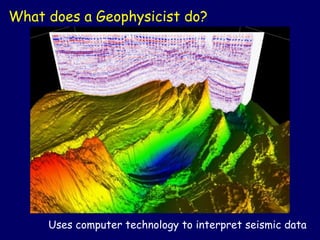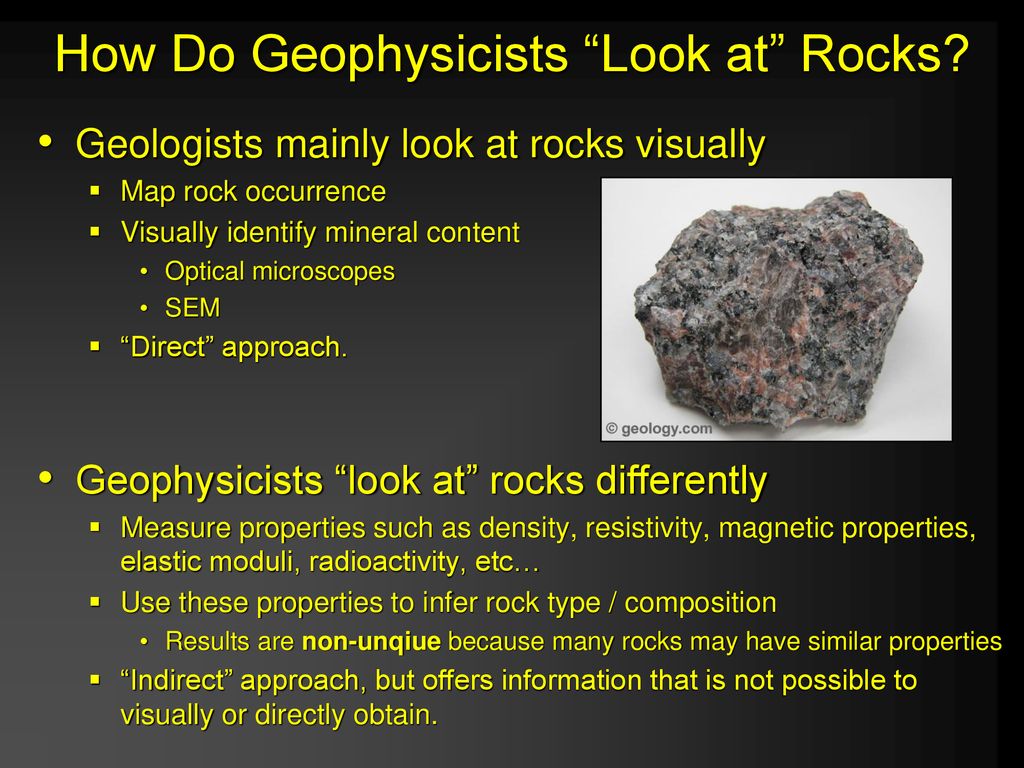All Categories
Featured
Table of Contents
5 Surface Geophysics in Martin Aus 2023

Other possible geophysicist majors that aren't geophysics or geoscience include: Atmospheric sciences and meteorology Chemical and physical oceanography Earth science Environmental science Hydrology and water resources science Materials science By making any geophysicist degree, and by taking the needed geology courses, you should qualify for an entry-level position as a geoscientist or geophysicist.
Eventually, trainees must learn: a branch of geology that looks at the various elements of minerals, consisting of chemical structure, internal crystal structure, and physical homes. the study of rocks and the processes and conditions that form and transform them with time. There are a couple of neighborhoods in this branch of geology, including igneous, metamorphic, and sedimentary rocks.

This field takes a look at structural rock functions such as cleavage, faults, joints, and small folds. They need to likewise find out the computer system skills necessary to: analyze data develop digital designs and maps run geoscientists' software Students must also make the most of all opportunities to gain real-world experience. Hopeful geophysicists need to expect to hang around learning: in the classroom in the field in labs Certainly, skills taught in the class are extremely crucial for striving geophysicists.
Geophysicist Jobs in Belmont Australia 2023
For example, geoscientists invest a great deal of their time outside when working in the field, so they should have "outside abilities" like outdoor camping and operating boats, aircraft, and other lorries. Since they invest so much time in remote areas, it's important that geophysicists likewise have the physical endurance to bring necessary devices on their hikes to locations of research study.
The job uses: a high mean and leading profits a high rate of individual complete satisfaction among geophysicists low work stress positive task outlook Additional info on profits capacity and task outlook is detailed listed below. For students wanting to land an entry-level role as a geoscientist or geophysicist, it takes 4 years, or the time needed to finish a bachelor's degree in geophysics or a related discipline.
Some research study positions in geophysics require postgraduate degrees. Also, if you prepare to teach at a college or university, you must earn a Ph - Geophysical Surveys: Definition & Methods in Redcliffe WA 2020. D. in geophysics or a related field. The time it takes to make a Ph. D. varies by organization and program, however it usually takes 4 to 6 years beyond the bachelor's degree.
Geophysicist Salary in Neerabup Oz 2022
In reality, many employers need prospects to have a bachelor's degree in geophysics or a closely associated discipline for all entry-level positions. And, sometimes, companies require a master's degree. As an outcome, there's no way around the degree requirements for ending up being a geophysicist. The majority of employers will expect or need a practicing geologist to be licensed for positions beyond those at the entry level.
Currently, 31 states require licensing for geologists, although licensing is not always needed, specifically for entry-level work. The states that do concern licenses utilize the Fundamentals of Geology Exam (FGE), which is administered through the National Association of State Boards of Geology (ASBOG). Now that you know which degree for geophysicist jobs you require, you'll require to land a job, and it's essential to learn how much cash you can make in this career.
According to BLS, the mean yearly wage for geoscientists is $93,580. According to BLS, particular industries offer greater incomes for geoscientists, and in some cases, they offer higher-than-average earnings.
Greeley-evans Area 3d Geophysical Survey in Mindarie Western Australia 2020
Mining, quarrying, and oil and gas extraction offers over $32,000 more yearly than the average yearly wage for this profession. The federal government, too, provides over $10,000 more in revenues than the nationwide average for geoscientists. In addition to industry type, geographic place can considerably affect earnings for this occupation.

The top-paying states and their yearly mean wages, according to the BLS, include: Texas $166,720 Oklahoma $149,630 Pennsylvania $120,590 Hawaii $120,130 Colorado $107,260 These five top-paying states use much greater earnings than the average for this occupation. Wages for geoscientists in Texas are over $73,000 greater than the national average.
It needs to come as no surprise that the majority of these high-paying locations are in Texas and Oklahoma, however some are discovered in California, Louisiana, and Colorado. The top 10 highest-paying city locations for geoscientists are: Houston-The Woodlands-Sugar Land, Texas: $188,400 Tulsa, Oklahoma: $186,490 Midland, Texas: $167,040 Odessa, Texas: $147,080 Oklahoma City, Oklahoma: $145,350 Bakersfield, California: $130,080 Urban Honolulu, Hawaii: $124,470 New Orleans-Metairie, Louisiana: $121,030 Washington-Arlington-Alexandria, DC, VA, MD, WV: $120,180 Denver-Aurora-Lakewood, Colorado: $116,910 For some geoscientists and geophysicists, living in a metro city is not as appealing as living in a smaller neighborhood.
Latest Posts
How To Become A Geophysicist in Dalkeith WA 2022
What Is The Best Degree Path For Becoming A Geophysicist? in Floreat WA 2023
Marine Geology And Geophysics in Rivervale Western Australia 2022